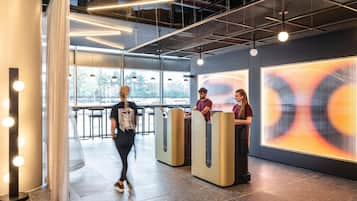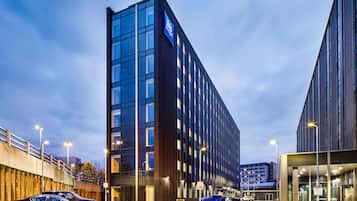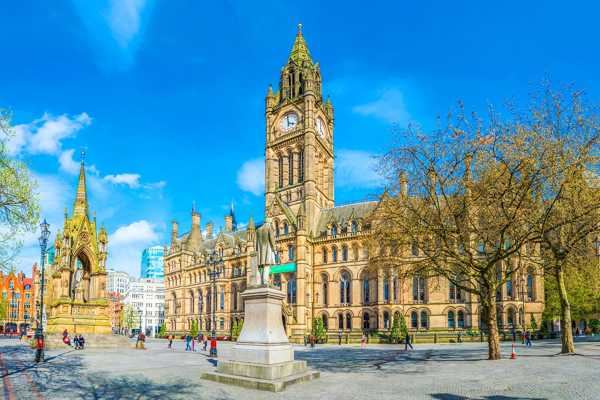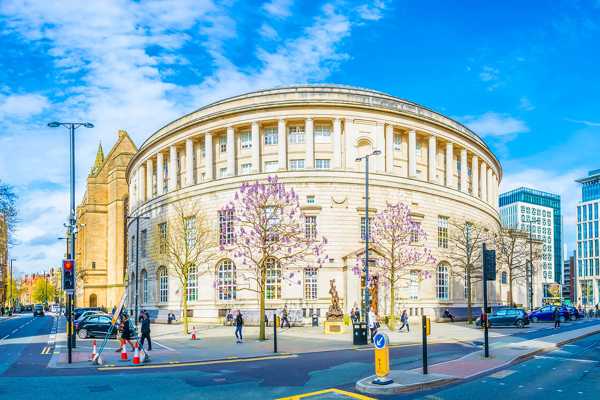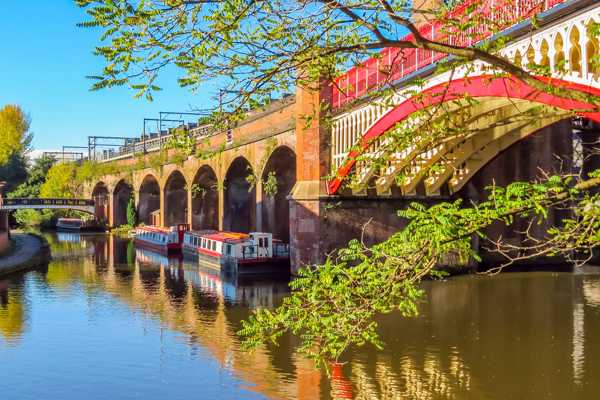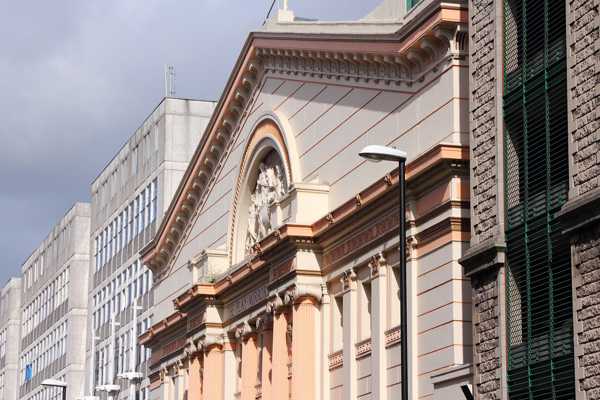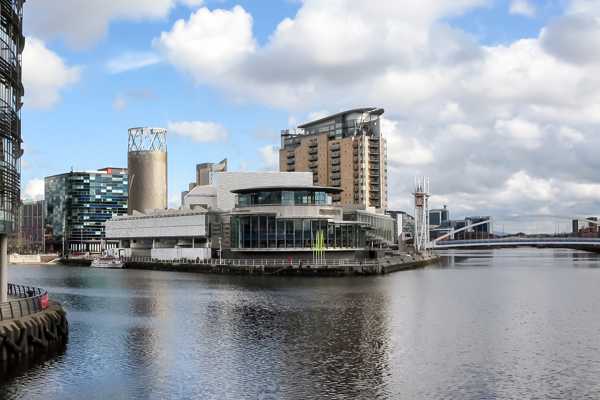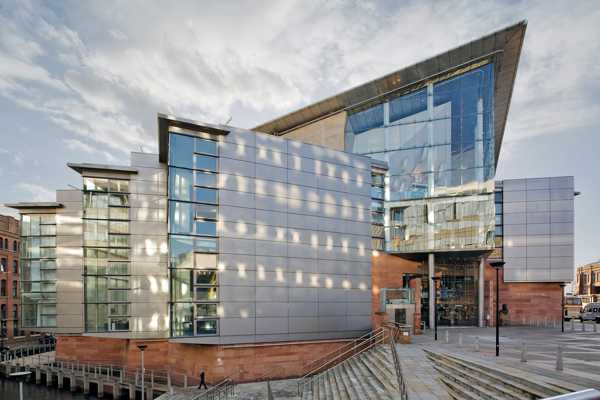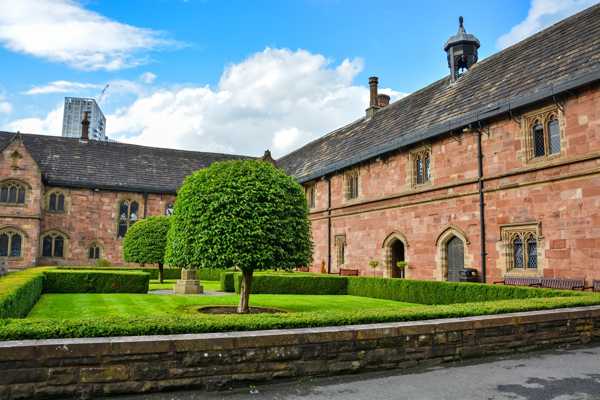Deansgate is a major road that extends throughout Manchester's city centre offering a variety of attractions like iconic landmarks, museums, open green spaces and the famous Manchester Central Library. While Deansgate offers several attractions of its own, you'll also find that it functions as a transit hub for most of the best attractions in the entire city, thanks to the wide array of public transport services working out of Deansgate.
Anyone interested in exploring history or seeing iconic monuments will enjoy spending time in Deansgate, though you'll probably find yourself here regardless if you plan on exploring Manchester. You could easily spend all day along Deansgate, but it'll take about 3 to 4 hours to explore the most popular museums and landmarks in the area. If you want to visit every single museum during your trip, you'll need to extend that time to 5 or 6 hours.
Deansgate in Manchester - one of the highlights of 10 Most Popular Streets in Manchester (Read all about Manchester here)
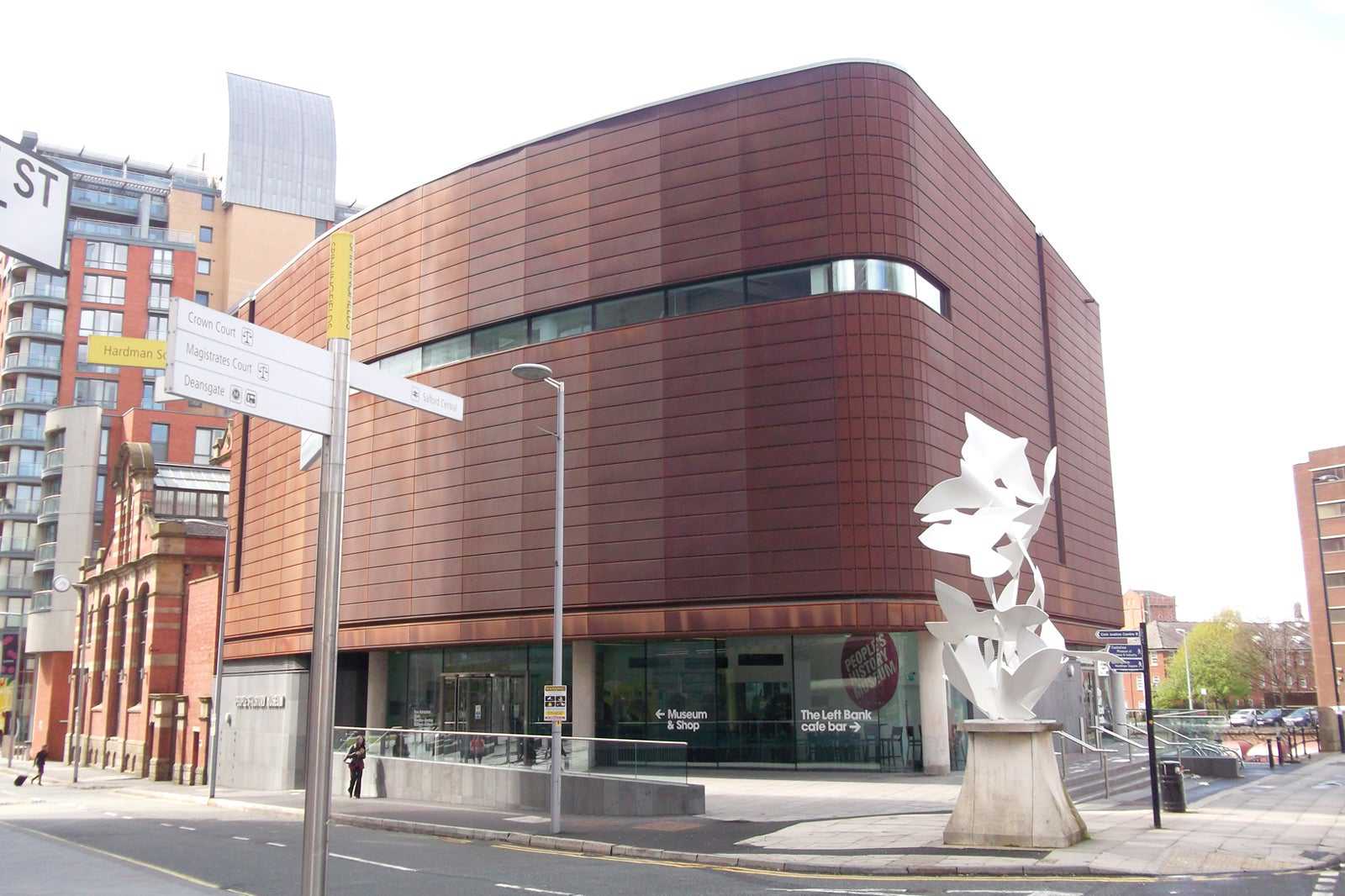
photo by Bernard Randall (CC BY-SA 3.0) modified
Deansgate highlights
Deansgate is most widely known for its numerous museums that offer valuable insight into a varied list of subjects. The People's History Museum, for example, shows off the history of democracy in the UK, highlighting victories for the working people of the country. You can also visit the Science and Industry Museum, which is situated in an old railway station from 1830. Don't forget to check out the National Football Museum as well, where you can discover the history and passion of the UK's greatest players.
History is easy to explore in Deansgate thanks to numerous iconic landmarks. The Manchester Cathedral is among the most noticeable, as its spires date back centuries. You can also visit the John Rylands Library, a neo-Gothic building that's home to several rare books. Additional Gothic architecture can be found at the Manchester City Council building, complete with a clock tower and some Victorian architectural designs.
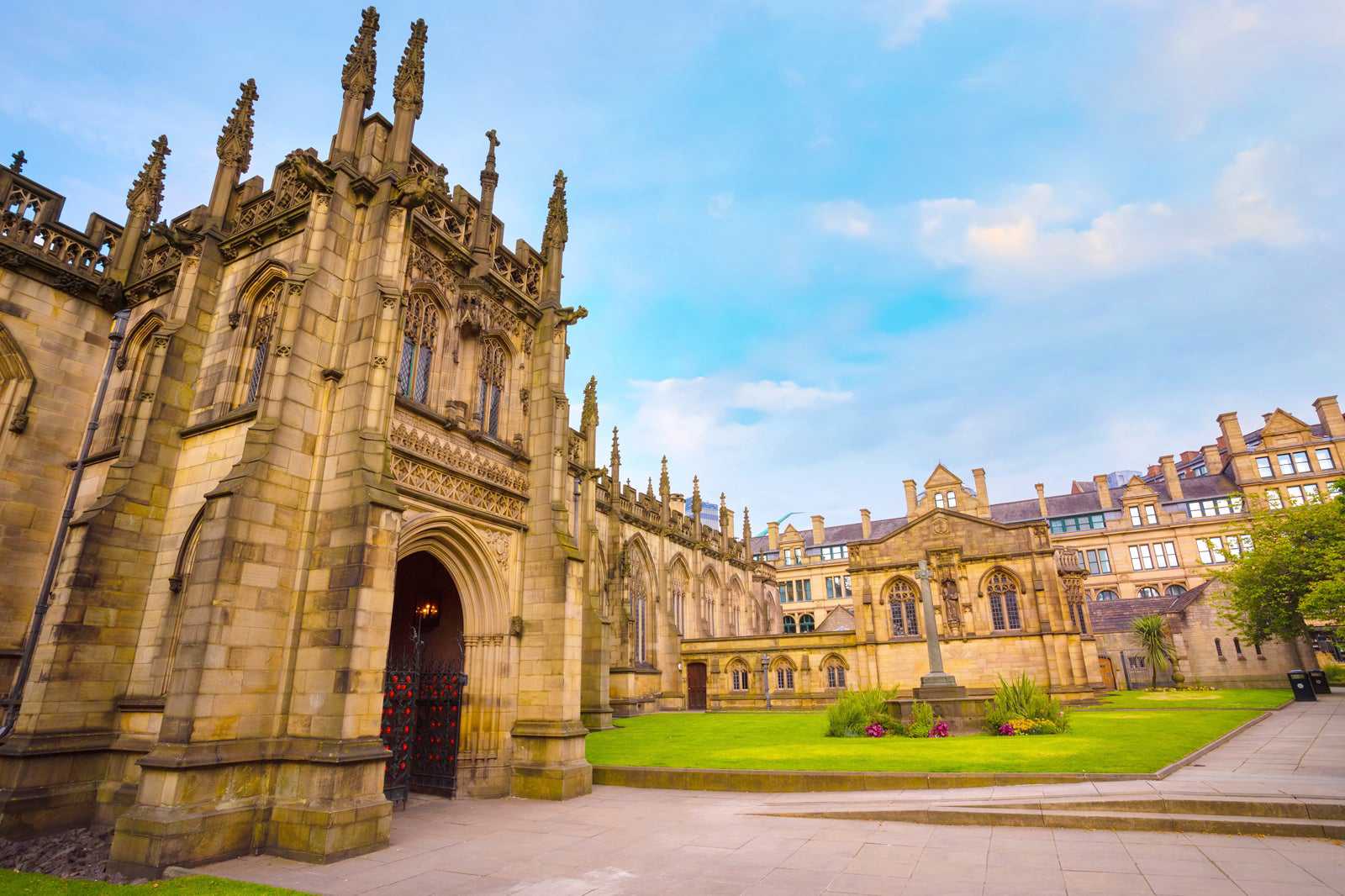
Deansgate history
The history of Deansgate stretches back to the times of the Romans when the path was first laid near Mamucium. This mile-long stretch of road is among the oldest in the entire city and was largely rural until the 18th century. Deansgate really didn't find much significance until a quay was developed on the river. The road got its name from the River Dene, which has long since been lost.
Throughout the Industrial Revolution, Deansgate connected industry to its workers. The northern end of the road led to several office buildings and shopping areas, while the southern end was largely residential with working-class people living in a sort of slum. By 1869, the social problems were being addressed, and while Deansgate functions similarly in the modern day, the residential southern end is far from the slum it used to be.
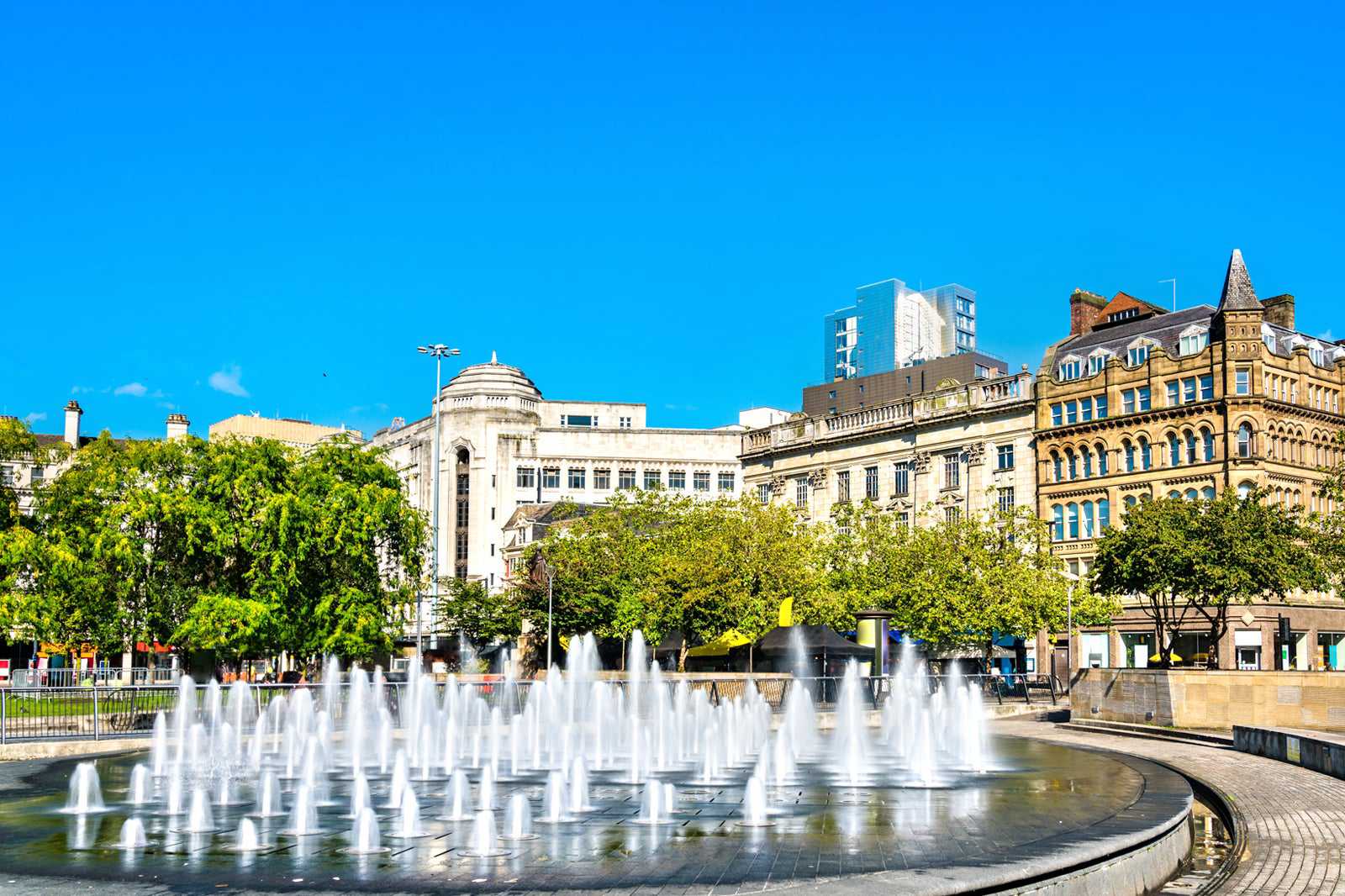
Good to know when visiting Deansgate
When travelling along Deansgate, it's generally best to take public transport rather than driving yourself. As one of the transport hubs for the entire city, it offers easy accessibility via train and tram stations on both ends of the mile-long road. The Metroshuttle bus also travels along Deansgate on routes 1, 2 and 3.
While Deansgate itself has some exciting attractions, it's a convenient central location for exploring the rest of Manchester. On the north side, you'll find yourself close to the Central Retail District and its extensive shopping opportunities. To the east, you can visit Chinatown, Piccadilly Gardens and the Alan Turing Memorial across the canal. Venture west, and you'll find yourself at the River Irwell, which offers lovely strolls on its banks along with convenient paths to Greengate and Blackfriars.
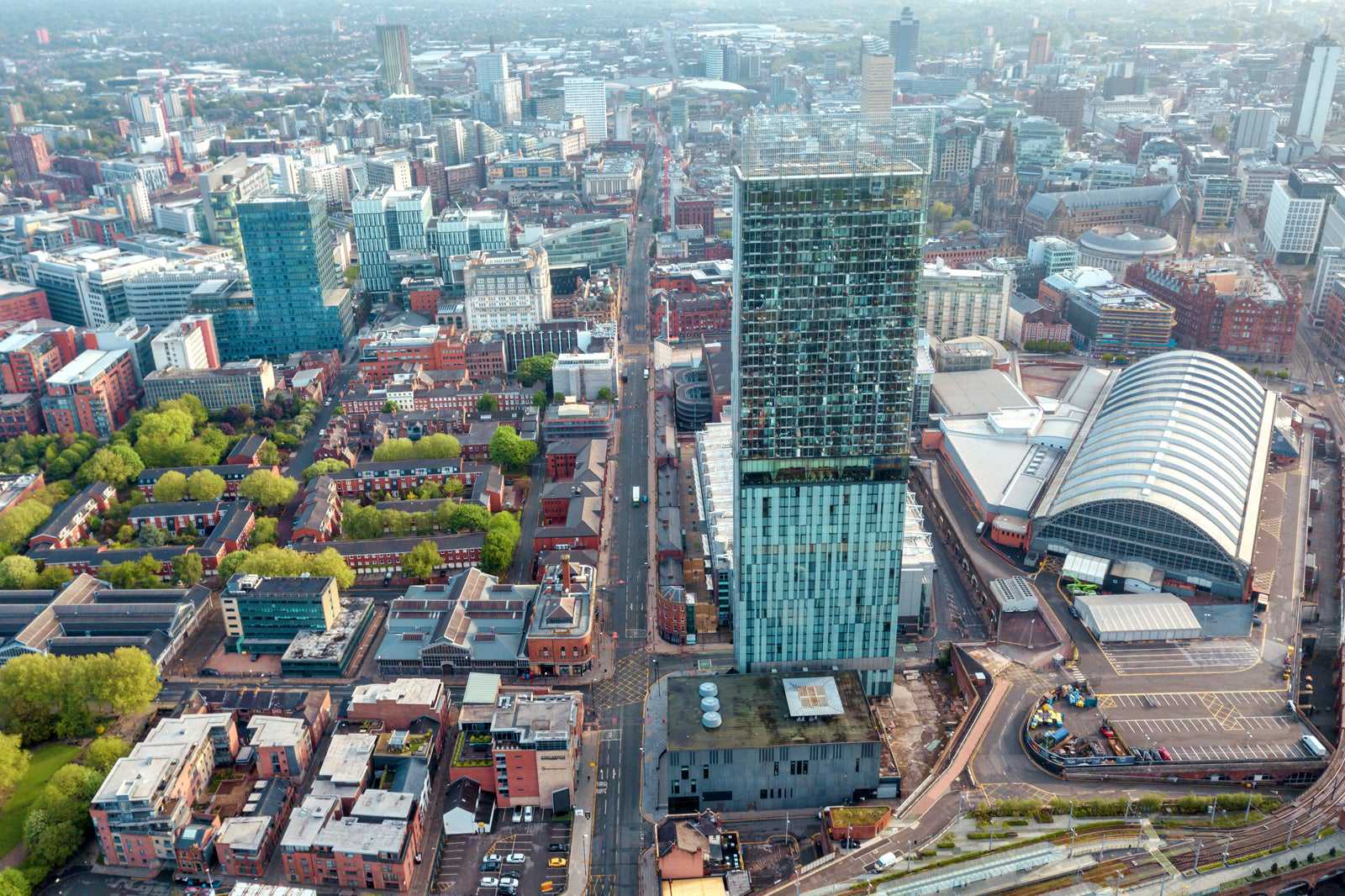
Deansgate in Manchester
Location: Deansgate, Manchester, UK
Open: 24/7


